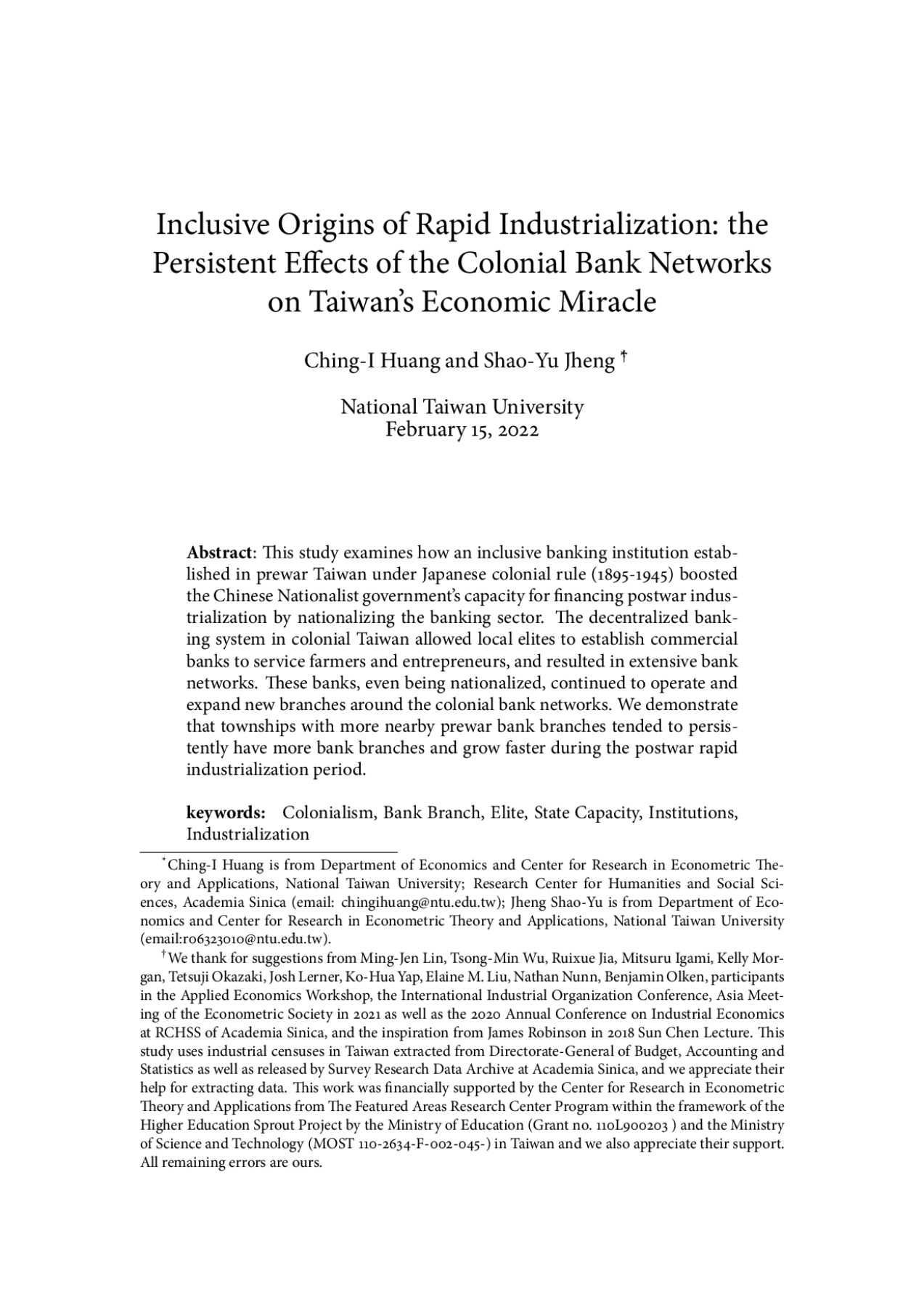2024 European Summer Meeting, Rotterdam: August, 2024
Inclusive Origins of Rapid Industrialization: the Persistent Eòects of the Colonial Bank Networks on Taiwan’s Economic Miracle
Ching-I Huang, Shao-Yu Jheng
Mainstream explanations for the East Asian miracle often neglect the role of inclusive economic institutions. ais study examines how an inclusive banking institution established in Taiwan under Japanese colonial rule (1895-1945) boosted the Chinese Nationalist government’s capacity to promote postwar rapid industrialization. The decentralized, bottom-up banking system in colonial Taiwan allowed local elites to establish commercial banks to service farmers and entrepreneurs, resulting in extensive bank networks.
This historical banking system played a crucial role in the postwar big-push policy which financed rapid industrialization by nationalizing the banking sector, because these commercial banks, even after being nationalized, continued to operate and expand new branches around the colonial bank networks in postwar Taiwan. We show that townships with more nearby prewar bank branches tended to grow faster during the period of postwar rapid industrialization. We also demonstrate firm-level channels
by examining the causal effect and the selection effect of loans.
This historical banking system played a crucial role in the postwar big-push policy which financed rapid industrialization by nationalizing the banking sector, because these commercial banks, even after being nationalized, continued to operate and expand new branches around the colonial bank networks in postwar Taiwan. We show that townships with more nearby prewar bank branches tended to grow faster during the period of postwar rapid industrialization. We also demonstrate firm-level channels
by examining the causal effect and the selection effect of loans.
Preview



























































